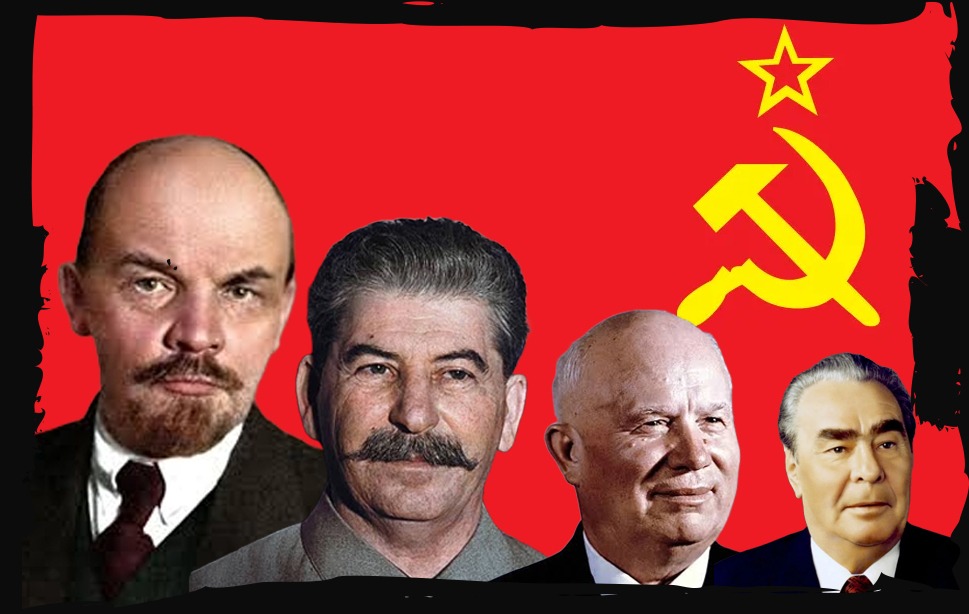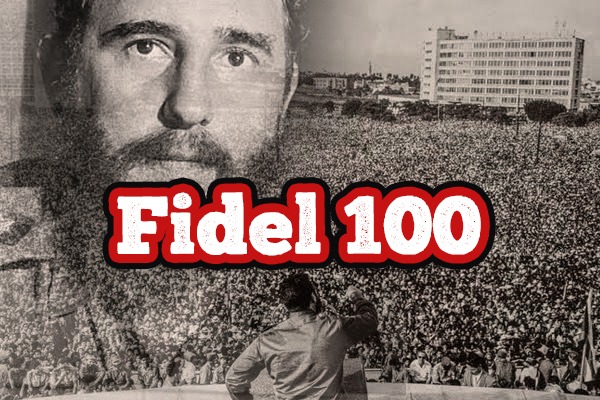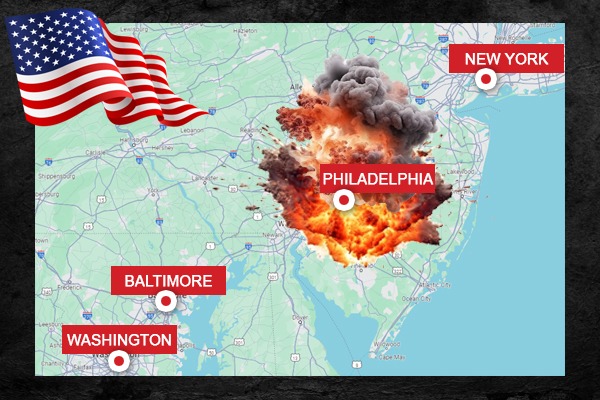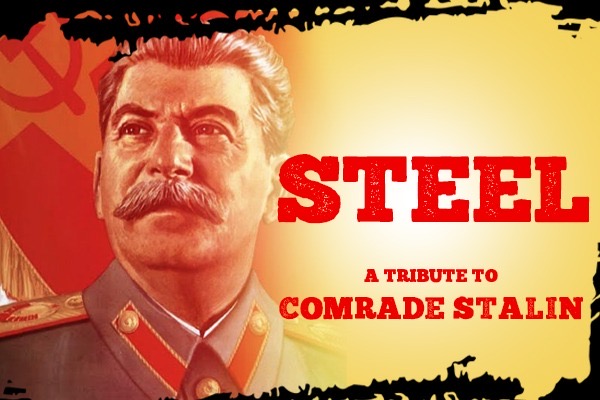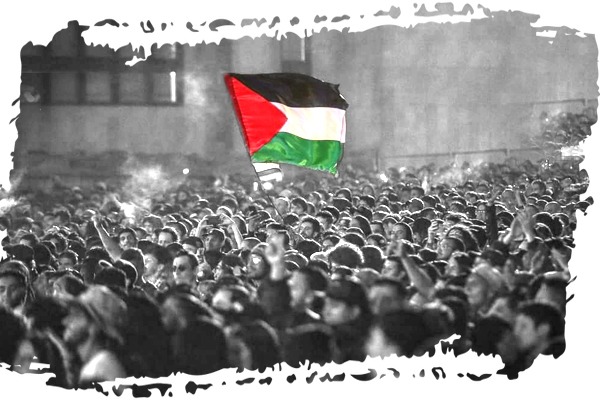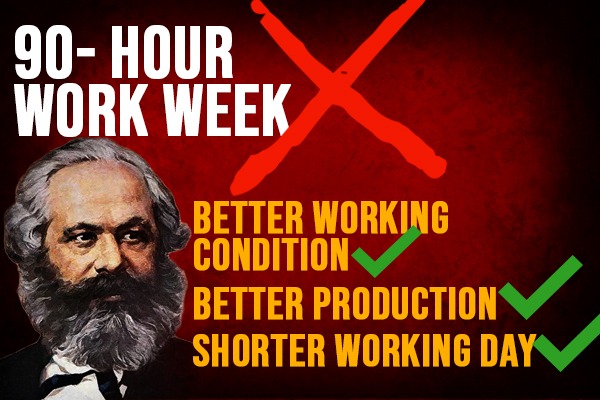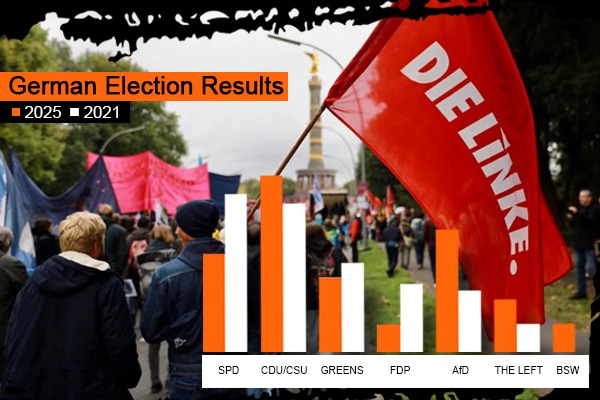We have made the start. When, at what date and time, and the proletarians of which nation will complete this process is not important. The important thing is that the ice has been broken; the road is open, the way has been shown.
- V. I. Lenin (1921)
Lenin is said to have danced on the snow when the new Soviet government outlasted its ideological predecessor, the Paris Commune. Even then, he was unsure whether the new Socialist state would be able to withstand an imperialist encirclement hellbent on destroying it. Against everyone’s expectations (including many Bolsheviks), it did. During the long civil war, the new revolutionary government defeated a slew of enemies, after that it stabilised the economy, and then embarked on a path of rapid industrialisation, propelling it to the world’s second most powerful economy, trailing only the United States.
However, the Soviet Union incurred significant costs as a result of the forced march. When faced with a ‘do or die’ situation, the Bolsheviks hardened their hearts. The lively inter-party debates gradually faded as the importance of party conformity and unanimity became apparent. Balanced economic policies gave way to a forced march of heavy industrialisation and agricultural collectivisation, which, while ultimately providing the new state with a sword of defence industry (which would later play a decisive role in defeating Hitler’s horde during the Great Patriotic War) and a shield of food security, came at the expense of enormous human life. The dilemmas of Soviet leadership were not enviable. They were doomed if they didn’t and damned if they did. If they had chosen a more gradual and relaxed pace for establishing the new state, the cost of internal political chaos and bloodshed would have been much lower. The price of rapid industrialisation and collectivisation would have been significantly lower. Rather than becoming a regimented and army-like political formation, the CPSU(B) would have been a much more tolerant party with multiple tendencies.
However, in this scenario, the Soviet Union would have perished when Nazi Germany (or any other power) inevitably attacked it. Fortunately for us, who benefited greatly from the defeat of fascism without paying a high price for it, the Soviets chose the other path that was available to them. However, it came with a cost. It distorted the character of the first socialist state. It distorted the socialist political culture that existed within it. In his final years, Lenin was terrified of what would happen if bureaucrats gained control of the party. That is exactly what happened after the first and second generations of Bolsheviks died.
Apparatchiks, who crept their way up the ladder of the party, were utterly opportunistic, lacked any kind of vision for the future, and had little to no real dedication to the socialist effort. The clash between party and secret police that characterised the 1930s resumed in earnest following World War II. Despite some setbacks, the secret police eventually won this battle, consolidating their hold on the Soviet state during the postwar years. All of this eventually led to the dissolution of the Soviet Union, in which Communist Party functionaries (rather than the people, who overwhelmingly voted to keep the Soviet Union) dissolved their own country, believing (correctly) that they would have far more opportunities for corruption and looting the state in a system that was not Socialist (however distorted). The ‘shock-doctrine’ of the 1990s and the enormous human cost associated with it are rarely discussed because it does not fit the narrative. However, now free of the last shackles of the Soviet system and ideological constraints, the vultures feasted (and continue to feast) on the former Soviet population.
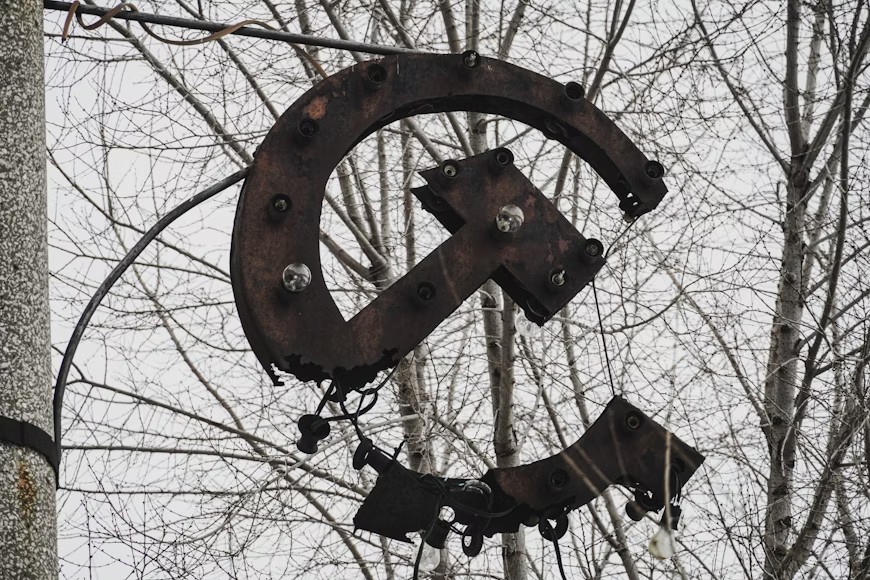
The fall of the Soviet Union was, without a doubt, a tragedy for the people of the Global South. For many years, despite its flaws, the Soviet Union was the most consistent supporter of colonised peoples’ struggles for national liberation. It aided them financially, politically, and morally. It served as a shield against the Imperialist vultures of the Global North. The loss of this shield had enormous consequences. The consequences included not only the spread of imperialist wars and the intensification of neocolonial resource exploitation (whether natural or human), but also politics.
For a long time, the Soviet Union represented to the people of the Global South an alternative to the development model promoted by Western powers. That alternative disappeared overnight. Many ideologues cried, “There is no alternative,” and, shocked by the rapid demise of the first socialist state, many in the global south accepted those words as truth, convinced that history had truly ended.
This shock occurred not only in the Global South, but also in the Global North. Entire Communist parties, founded on sacrifices of blood, sweat, and tears, changed their programmes and names. Others, while hesitant to openly abandon the causes for which their forefathers fought, significantly diluted their programmes. The events of 1991 shifted the entire political Overton window of the world firmly to the right, with people even afraid to use the ‘S’ word with full conviction for fear of being mistaken for ‘Looney Left’.
However, even during those difficult times, some people in the Global North and Global South continued to fly the red flag. Indeed, the only countries in the world that continued to support “Really Existing Socialism” were all located in the South of the globe. However, the fall of the Soviet Union has shaken the confidence of socialists in the Global South as well, and badly. The rapid pace of globalisation and the fundamental restructuring of the world economy that followed only added to the sense of confusion. Is China still socialist? Is Vietnam? Is Cuba still committed to resisting the United States? The concrete facts of yesterday did not appear so concrete anymore. Confusion was the hallmark of this era, so this is to be expected. For what it’s worth, the current author regards both China and Vietnam, despite their flaws, as states genuinely committed to the construction of Socialism, and believes Cuba continues to be a bastion of anti-imperialism in Latin America. If nothing else, he concurs with former US Secretary of State Hillary Clinton’s assessment. Many socialists around the world, perplexed, shaken, and adrift, asked and asked again, “What should we do in such a disastrous situation?” This time, no Lenin stepped in to help.
But the people did. Looking back, over the last thirty years, people and popular movements have consistently provided a blueprint for how to conduct politics in this new era. A party is still required, as evidenced by the repeated failures of non-partisan popular movements and uprisings to effect long-term sociopolitical change (most recently in Bangladesh). The danger of such non-partisan popular movements is that, even if they succeed, they leave a power vacuum that is prone to being filled by people cut from the same cloth as the previous ruling powers.
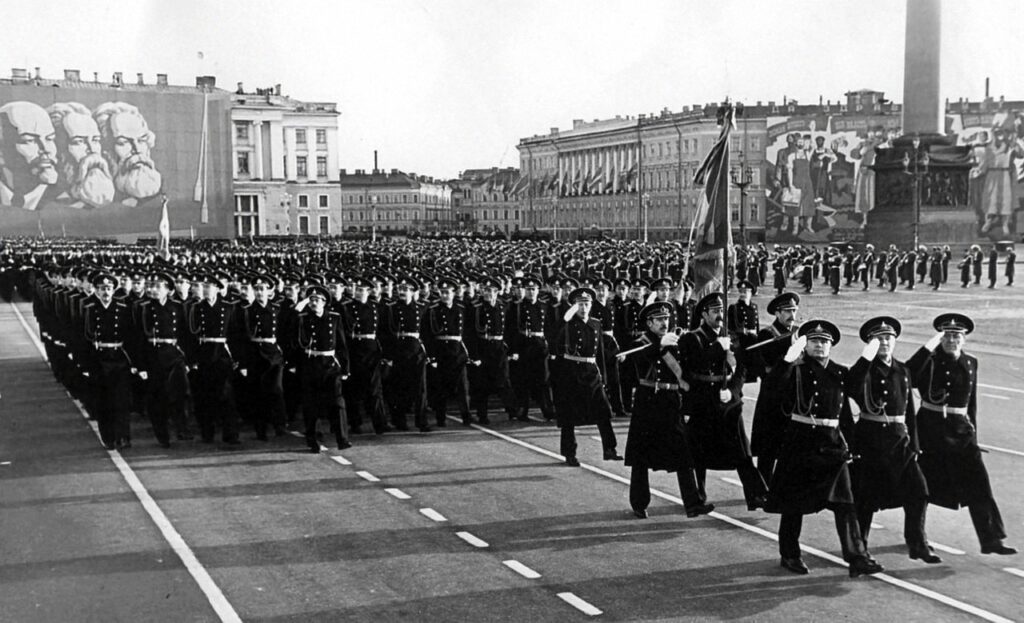
Broad-based popular movements, on the other hand, with support from traditional socialist/communist party (or parties), tend to achieve far greater success. The success of the parties affiliated with the ‘São Paulo Forum’ in gaining state power and implementing reforms in Latin American countries demonstrates its effectiveness of the model. Following the collapse of the Soviet Union, this remains arguably the best bet for people living in the Global South looking to construct an alternative in the contemporary era. Most recently, its viability has been again demonstrated (in stark contrast to Bangladesh) by the post-uprising election of a Marxist President in Sri Lanka. Although the newly elected President would operate within the same old system, blunting many of the reforms that could be implemented, it would be a step up from an uprising that would lead nowhere (or worse, empower reactionary forces).
This, in the author’s opinion, is the path that most Global South socialist/communist parties must take. They must form the broadest coalitions and alliances possible with progressive parties and movements, all based on a clear common minimum program or plan of action. They must form genuine solidarity with waves of mass popular movements that will undoubtedly emerge in the Global South. They have a historical obligation to provide ideological coherence to popular rage against the neoliberal order, which continues to simmer even in the most tranquil nations of the Global South.
And what about Global North? Here, the situation is far more hopeless than in the Global South. Although in some countries in the Global North some progress had been made in political sphere in the recent years, the overall situation remains bleak. The most serious issue that appears to be plaguing the Global North is the Left’s rejection of the anti-imperialist ethos. Most of the leftist parties appeared to have reverted to the days of the Second International’s Stuttgart Congress, when figures such as Bernstein and David effectively supported colonialism. Following the November Revolution, the Social Democrats were forced to take a moderate anticolonial stance in the face of Communists’ vehement anticolonialism.
Even during the Cold War, many of the Global North’s Social-Democratic parties paid lip service to anti-colonial and anti-imperialist views. Some, like Olof Palme of Sweden, were even sincere about it. The fall of the Soviet Union caused them to cast away their pretentions and revert to their old position. Throughout the 1990s, imperialist intervention was gradually normalised within non-communist leftist circles in the Global North. Throughout the 2000s, various political parties openly and enthusiastically supported such interventions. This condition has not changed, as evidenced by recent events in Gaza, where Israel’s Western-backed atrocities found some of its most ardent defenders among Western European ‘Socialist’ and Social-Democratic parties. As long as this situation persists, Communist parties such as KKE in Greece and PTB/PVDA in Belgium have little chance of making a breakthrough through broad left coalitions, because the gap in outlook remains too wide to be bridged. So the way forward for the Global North appears to be an increase in strength of individual anti-imperialist parties. Only then will these parties be able to form an organic front based on shared policies and ride the waves of popular movements to achieve tangible political goals.
Yegor Ligachev, once a supporter and then a fierce critic of Mikhail Gorbachev, once commented – ‘History does not progress in a straight line. It zigzags, steps back, and turns. The socialist phase of civilization has not managed to avoid those turns. Despite the temporary defeat of socialism in the Soviet Union, the twentieth century will go down in history for the destruction of the colonial system, the defeat of fascist tyranny, and the experiment in construction of a socialist society. On the basis of that history, humanity will eventually realize a breakthrough to a socially just society, one in which the individual will come to full fruition.’ This is exactly what the current author believes. The fall of the Soviet Union does not mark the end of the socialist struggle, but rather the beginning.
The Bourbon restoration of 1815 did not succeed in sweeping the French Revolution and the forces unleashed by it under the rug for good, despite the fact that the Royalists of the time believed so. Similarly, the collapse of socialist systems and the restoration of capitalism will be insufficient to suppress the forces unleashed in 1917 in the long run. As Lenin said. the way has indeed been shown. Indeed, the lessons of the twentieth century have taught us that there is more than one road to take while travelling on the general direction shown by the Great October Revolution.
Those roads, many still untrodden, remain open for those who want to walk them for a better future for all mankind. This is not the end yet. Only, the end of the beginning.

